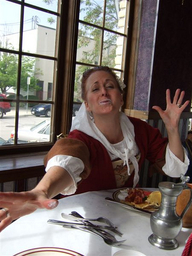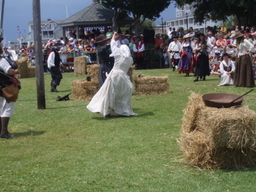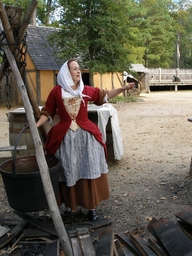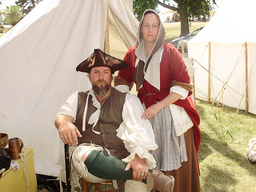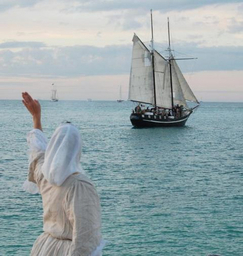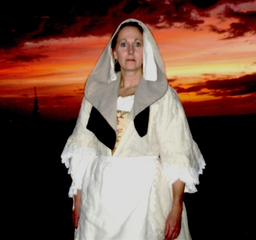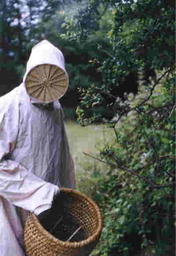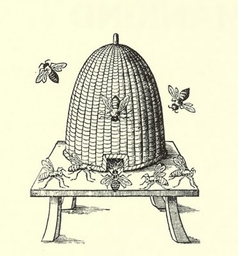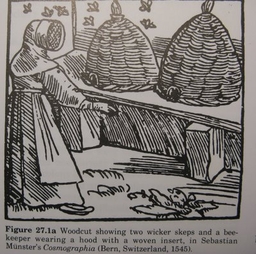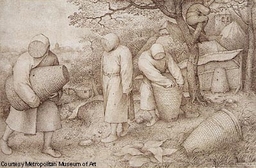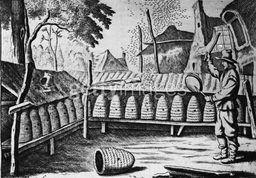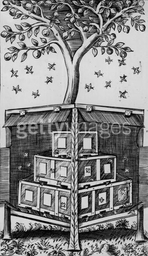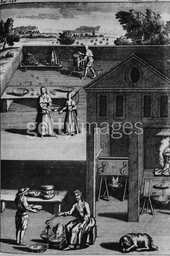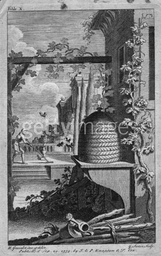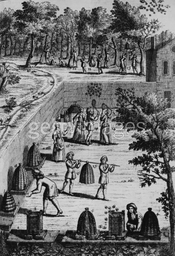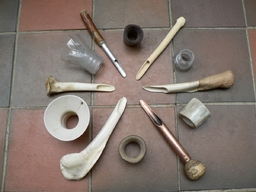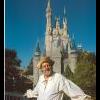
Bess Hagarty
Member-
Posts
79 -
Joined
-
Last visited
Content Type
Profiles
Forums
Events
Gallery
Everything posted by Bess Hagarty
-
From the album: Bess Hagarty
-
From the album: Bess Hagarty
-
From the album: Bess Hagarty
-
From the album: Bess Hagarty
-
From the album: Bess Hagarty
-
From the album: Bess Hagarty
-
From the album: Bess Hagarty - Mistress of the Bees
-
Bess Hagarty - Mistress of the Bees
Images added to a gallery album owned by Bess Hagarty in Pub Members Gallery
Photos and sketchings of period items and scenes for the practice of Beekeeping...and when you have Bees....you have...TaDa...MEAD!!! -
From the album: Bess Hagarty - Mistress of the Bees
-
From the album: Bess Hagarty - Mistress of the Bees
-
From the album: Bess Hagarty - Mistress of the Bees
-
From the album: Bess Hagarty - Mistress of the Bees
-
From the album: Bess Hagarty - Mistress of the Bees
-
From the album: Bess Hagarty - Mistress of the Bees
-
From the album: Bess Hagarty - Mistress of the Bees
-
From the album: Bess Hagarty - Mistress of the Bees
-
From the album: Bess Hagarty - Mistress of the Bees
-
From the album: Bess Hagarty - Mistress of the Bees
-
Thank you all for your kind words. Yes, The English were very hypocritical about religious equality in the settlement of the colonies. There are letters and court documentation that still survive documenting the trail of Roger Williams (Founder of the United Methodist Church) that ‘forced’ (which is a mild term considering the events that followed the trail) him to leave the Massachusetts Bay Settlement. Upon leaving the Bay Settlement, several days into the journey to Rhode Island, they were attacked by indians. But there was suspicion regarding ‘said Indians’ that attacked the group. It was stated years later by several of the predominate men of the Bay Settlement, that several members of the Bay settlement ‘dressing like savages’ and attacking the group. I will have to look through my family literature to find the names and dates.
-
http://pyracy.com/index.php?showtopic=11705&st=0&p=283534&hl=White%20Indentured%20Servants&fromsearch=1entry283534 Here you go Jib...this should help.
-
I've been doing a bit of reading these past few days and found some interesting tidbits regarding the on-going evolution of pirates in the 17th and 18th centuries. In my reading, I came across several interesting facts that some pirates were not only criminals, rebels, and the dregs of society but also those who were prosecuted for religious differences! Some of these groups were the Levellers, Diggers, Ranters, Fifth Monarchists or Fifth Monarchy Men, and Muggletonians. To understand these religious sects that were known to exists during the mid to late 17th century and into the early part of 18th century, I have listed a brief description of each. Please note that I did not list the Puritans nor the Quakers, though they also met with religious strife during this time period. The Levellers were a political movement during the English Civil Wars which emphasised popular sovereignty, extended suffrage, equality before the law, and religious tolerance, all of which were expressed in the manifesto "Agreement of the People". They were one of the largest factions on the Parliamentarian side during the English Civil Wars. They came to prominence at the end of the First English Civil War and were most influential before the start of the Second Civil War. Leveller views and support were found in the populace of the City of London and in some regiments in the New Model Army. The term 'leveller' had been used in 17th-century England as a term of abuse for rural rebels. In the Midland Revolt of 1607, the name was used to refer to those who 'levelled' hedges in enclosure riots. The Diggers were an English radical religious group begun by Gerrard Winstanley who was a member of the True Levellers in 1649 yet, thus soon became known as "Diggers" due to their activities. Their original name came from their belief in economic equality based upon a specific passage in the Book of Acts. The Diggers tried to reform (by "levelling" real property) the existing social order with an agrarian lifestyle based on their ideas for the creation of small egalitarian rural communities. They were one of a number of nonconformists dissenting groups that emerged around this time. The Ranters were a radical English sect in the time of the Commonwealth (1649-1660), who were regarded as heretical by the established Church of that period. Their central idea was pantheistic, that God is essentially in every creature; this led them to deny the authority of the Church, of scripture, of the current ministry and of services, instead calling on men to hearken to Jesus within them. Many Ranters seem to have rejected a belief in immortality and in a personal God, and in many ways they resemble the Brethren of the Free Spirit in the 14th century. Though they were not particularly organized and had no leader, their most infamous member was Laurence Clarkson. They were one of a number of nonconformist dissenting groups that emerged around this time. They seem to have been regarded by the government of the time as a genuine threat to social order. Ranters were often associated with nudity, which they may have used as a manner of social protest as well as religious expression as a symbol of abandoning earthly goods. Ranters were accused of antinomianism, fanaticism, and sexual immorality, and put in prison until they recanted. The Ranters were largely recruited from the common people, and there is plenty of evidence that the movement was widespread throughout England. John Bunyan, author of Pilgrim's Progress, claimed in his autobiography, Grace Abounding to the Chief of Sinners, to have encountered Ranters prior to his Baptist conversion.[2] They came into contact and even rivalry with the early Quakers, who were often falsely accused of direct association with them.[1] George Fox stated that most of the Ranters were converted to Quakerism at the time of the Restoration. In the mid-19th century, the name was often applied to the Primitive Methodists, with reference to their crude and often noisy preaching.[1] The Fifth Monarchists or Fifth Monarchy Men were active from 1649 to 1661 during the Interregnum, following the English Civil Wars of the 17th century. They took their name from a belief in a world-ruling kingdom to be established by a returning Jesus in which prominently figures the year 1666 and its numerical relationship to a passage in the Biblical Book of Revelation indicating the end of earthly rule by carnal human beings. They were one of a number of nonconformist dissenting groups that emerged around this time. The Fifth Monarchists were a group of believers in a geopolitical theory which maintained that four other world rulers had already come and gone according to the prophecies of the biblical Book of Daniel (2:44). This text recounts a prophetic dream by Nebuchadnezzar, in which the previous empires had been Assyrian; Persian; Grecian and Roman, The last empire, they concluded, would be established by the returning Jesus as King of kings and Lord of lords to reign with his saints on earth for a thousand years. The Fifth Monarchists saw themselves as those saints of that soon to be dawning millennium. Among prominent Fifth Monarchists were Thomas Harrison, Christopher Feake, Vavasor Powell, John Carew, John Rogers and Robert Blackborne, Secretary of the Admiralty and later of the British East India Company. 17th century millenarian sect, particularly strong in Wales, which believed that the rule of Christ and his saints was imminent. The sect's name derives from a prophesy in the Book of Daniel that four ancient monarchies (Assyrian, Persian, Macedonian, and Roman) would precede Christ's return. The movement thrived during the interregnum of the 1650s and originally supported Oliver Cromwell until his increasing role seemed at odds with their principals. Subsequently they were persecuted and, despite an abortive rising in London January 1661, they disappeared with the Restoration. Fifth Monarchists believed that the timing of the events of the Interregnum were significant because the calendar year 1666 loomed large on the near horizon. The number 666 had been identified in the Book of Revelation with the ultimate human despot to rule the world, but who would be replaced by the second coming of the Messiah; this only added to the belief that the Fifth Monarchy was about to begin. The Muggletonians, named after Lodowicke Muggleton, were a small Protestant Christian movement which began in 1651 when two London tailors announced they were the last prophets foretold in the biblical Book of Revelation. The group grew out of the Ranters and in opposition to the Quakers. Muggletonian beliefs include a hostility to philosophical reason, a scriptural understanding of how the universe works and a belief that God appeared directly on this earth as Christ Jesus. A consequential belief is that God takes no notice of everyday events on earth and will not generally intervene until it is mete to bring the world to an end. Muggletonians have avoided all forms of worship or preaching and, in the past, met only for discussion and socializing amongst members. The movement has been egalitarian, apolitical, pacifist and has resolutely avoided evangelism. Members attained a degree of public notoriety by cursing those who reviled their faith. This practice, which proved uncannily effective, ceased in the mid-nineteenth century and one of the last to suffer was the novelist Sir Walter Scott. The faith attracted public attention in 1979 when Mr Philip Noakes left the entire Muggletonian archive of correspondence, general papers and publications to the British Library. Muggletonians has a two part history into the seventeenth century. From 1652-58, under the primary leadership of John Reeve (1608-1658), or Reeves, the "Prophet of God" and his cousin Lodowick Muggleton (1609-1698). The second period from 1658-98, under the general leadership of Lodowick Muggleton. The following is from: 'Radical Pirates?' in Collected Essays, Christopher Hill, 'Caliban's Masque: Spiritual Anarchy and the Wild Man in Colonial America', Peter Lamborn Wilson, and ' Gone to Croatan: The Origins of North American Dropout Culture - in Sakolsky and Koehnline. The Caribbean islands in the second half of the 17th century were a melting pot of rebellious and pauperised immigrants from across the world. There were thousands of deported Irish, Liverpool beggars, Royalist prisoners from Scotland, pirates caught on the English high seas, highwaymen caught on the Scottish borders, exiled Huguenots and Frenchmen, outlawed religious dissenters and the captured prisoners of various uprisings and plots against the King. The proto-anarchist revolutionary movements of the Civil War of the 1640s had been suppressed and defeated by the time of the dawn of the great age of piracy in the late 17th century but there is good evidence to show that some of the Diggers, Ranters, Muggletonians, Fifth Monarchy Men etc. fled to the Americas and the Caribbean where they inspired or joined these insurrectionary pirate crews. Indeed, a group of pirates settled in Madagascar at a place they had "given the name of Ranter Bay." After the defeat of the Levellers in 1649, John Lilburne offered to lead his followers to the West Indies, if the government would foot the bill. It also seems that the Ranters and Diggers lasted longer in the Americas than in Britain - as late as the 1690s there were reported to be Ranters in Long Island. This isn't surprising really as the New World territories were used by Britain as penal colonies for its discontented and rebellious poor. In 1655 Barbados was described as "a dunghill wheron England doth cast forth its rubbish." Among these undesirables there would have been numbers of radicals - those who had provided the spark for the revolution of 1640. "Perrot, the bearded ranter who refused to doff his hat to the Almighty, ended up in Barbadoes," as did many others such as the Ranter intellectual Joseph Salmon. And of course…the Caribbean had become a haven for religious radicals did not go unnoticed. In 1656 Samuel Highland advised Parliament not to sentence the Quaker heretic James Nayler to transportation lest he infect other settlers! It was clear at this time that the new British colonies to the west were seen as a haven of relative religious and political liberty; that much further beyond the grasp of law and authority.
-
Hmm...a left handed twist?! My aren't we fancy! Now all we need is a small tawny-white kitten for the cannon swab! William Redwake...do you have any more kittens?

